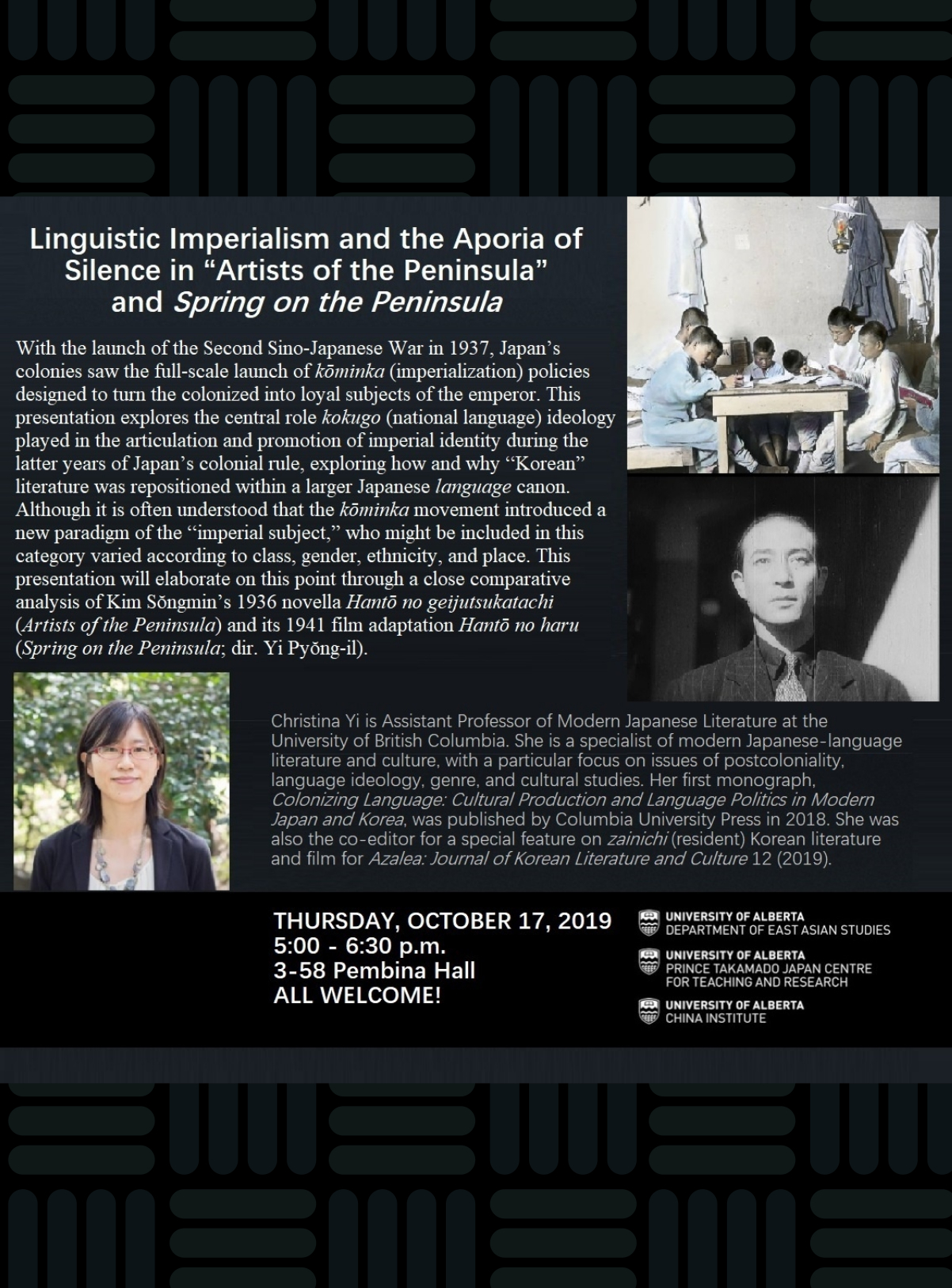
With the launch of the Second Sino-Japanese War in 1937, Japan's colonies saw the full-scale launch of kōminka (imperialization) policies designed to turn the colonized into loyal subjects of the emperor. This presentation explores the central role kokugo (national language) ideology played in the articulation and promotion of imperial identity during the latter years of Japan's colonial rule, exploring how and why "Korean" literature was repositioned within a larger Japanese language canon. Although it is often understood that the kōminka movement introduced a new paradigm of the "imperial subject," who might be included in this category varied according to class, gender, ethnicity, and place. This presentation will elaborate on this point through a close comparative analysis of Kim Sŏngmin's 1936 novella Hantō no geijutsukatachi (Artists of the Peninsula) and its 1941 film adaptation Hantō no haru (Spring on the Peninsula; dir. Yi Pyŏng-il).
Christina Yi is Assistant Professor of Modern Japanese Literature at the University of British Columbia. She is a specialist of modern Japanese-language literature and culture, with a particular focus on issues of postcoloniality, language ideology, genre, and cultural studies. Her first monograph, Colonizing Language: Cultural Production and Language Politics in Modern Japan and Korea, was published by Columbia University Press in 2018. She was also the co-editor for a special feature on zainichi (resident) Korean literature and film for Azalea: Journal of Korean Literature and Culture 12 (2019).